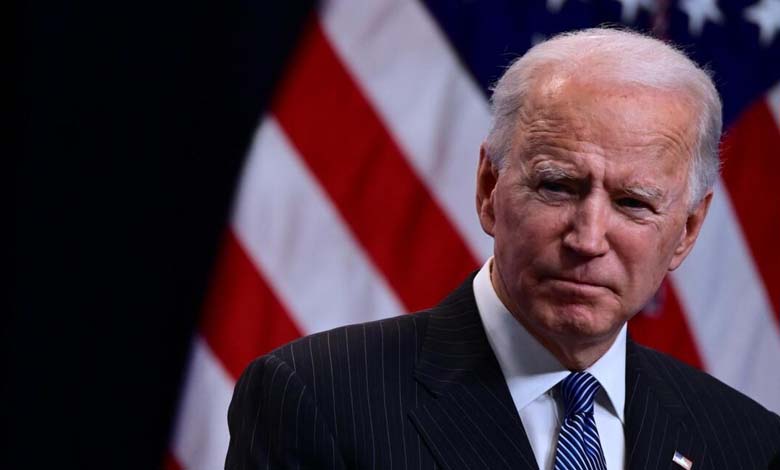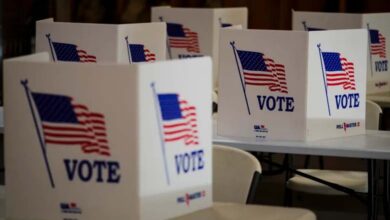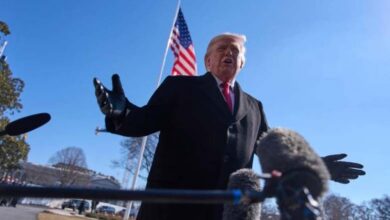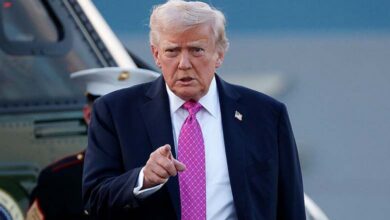A Father’s Silence and a President’s Confusion: Recording Reveals Secrets About Biden’s Memory

In a room heavy with silence, broken only by the ticking of an old wooden clock, former U.S. President Joe Biden struggled not with opponents, but with the fragments of his own memory.
-
Weapons and Cancelled Debts: Biden’s “Final” Gifts to Ukraine
-
“Trash”… Trump’s Gift to Harris that Biden Sent Back
Seemingly simple questions turned into temporal traps: when did his son die? When did he leave the vice presidency? Why was he in possession of documents he wasn’t supposed to have? With the ticking clock as background, silence was the unspoken narrator, and confusion the main theme.
This is what a long-withheld audio recording, now revealed, shows—a president not just forgetful, but whose memory seemed to be slowly deteriorating, even as the election battle against now-president Donald Trump intensified.
-
Can Biden Succeed in Stopping the Gaza War? An American Newspaper Responds
-
Biden and the Trump Hat: A New Gaffe or a Noble Gesture?
What the recording reveals
According to a recording obtained by Axios from interviews in October 2023 with Special Counsel Robert Hur, Biden struggled to recall when his son Beau died, when he left office as Vice President, when Trump was elected, and why he had classified documents.
The audio—where Biden fumbles over words, complains, and hesitates—sheds light on why the White House refused to release it last year amid growing concerns about his mental acuity.
It also supports Hur’s assertion that jurors would likely view Biden as “a well-meaning, elderly man with a poor memory.” That view partly justified Hur’s decision not to prosecute Biden for unlawful possession of classified documents—angering Republicans who pointed to Trump’s ongoing charges for similar offenses.
-
The Untold Story: How Nancy Pelosi Forced Biden to Withdraw
-
Biden threatens Netanyahu with “Support Umbrella”: Has the President lost patience?
Democrats and Biden’s White House slammed Hur’s characterization as politically motivated. But the six-hour interview shows Hur and fellow attorney Mark Krickbaum remained respectful and courteous.
The release of this audio comes as Biden, now 81, seeks re-election—forcing Democrats to reckon with questions about his age and capacity to serve.
Silence, memory lapses, and reminders
The recording captures long silences as Biden struggles to recall names or dates—often prompted by his lawyers. They had to remind him that his son Beau died in 2015, and that Trump was elected in 2016.
-
Biden: The Death of Haniyeh Did Not Help Move Towards a Ceasefire
-
Biden’s Withdrawal and Support for Harris… Behind the Scenes of the “Final Hours”
The interviews took place in the White House Map Room, with the old clock ticking audibly. Biden spoke about his memoir Promise Me, Dad, recounting Beau’s death from brain cancer at age 46.
Despite clear memory issues, Biden was generally engaged, joking and responding to questions coherently.
On October 8—the first day of interviews, just after Hamas’s attack on Israel—Biden was notably slower and more distracted. He seemed sharper and more focused on October 9.
-
Report: Biden Feels “Betrayed” by Democrats
-
Sleep Defeats “Secrecy”.. Biden Leaves Scholtz and Goes to Bed
A witness, not a suspect
Throughout, Biden came off more like a nostalgic grandfather than a potential defendant. He reminisced about driving his Corvette with Jay Leno and about the historical impact of Gutenberg’s press.
At one point, he even asked, “Do I understand what I’m saying?”, acknowledging his own confusion.
Tension arose when Biden’s lawyer Bob Bauer pushed back on Krickbaum’s questions about Biden’s motives for keeping a memo about Afghanistan. Biden admitted: “I think I just wanted to keep it for historical reasons.”
-
Picture for every step… New trick from White House staff to guide Biden
-
Biden’s Resignation Scenario… Who Will Succeed Him?
That comment could have led to a criminal charge—but his lawyer quickly clarified that Biden couldn’t recall such an intention.
The audio shows that despite memory lapses, Biden was cooperative—unlike Trump—and that factor significantly influenced Hur’s decision not to indict.












